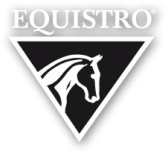
Iodine
Sources
Iodine concentrations in most common feedstuffs vary from 0.2 to 2 mg/kg dry matter (DM). This depends on the concentration of iodine in the soil on which the feedstuffs were grown. Kelp and other seaweeds are sometimes fed to horses and can have concentrations as high as 1.850 mg of iodine/kg DM.
Daily requirements
Minimum daily intake:
0.1 to 0.6 mg/kg of dietary intake
Daily maintenance requirement:
0.007 mg/kg body weight or 0.35 mg/kg dry matter
Daily requirement for broodmares in 3. trimester of pregnancy :
0.4 mg/kg dry matter
Maximum daily intake:
5 mg/kg of dietary intake
Deficiency
In regions far from the coast, iodine deficiency is relatively common due to low levels in the soil and therefore in the feed on offer.
A prolonged iodine deficiency in the daily ration can lead to hypothyroidism, which is often accompanied by goitre formation.
In pregnant mares, an iodine deficiency can cause abortions or delayed maturation of the foetus (prolonged gestation period) as well as disorders in the development of the nervous and skeletal systems. As the iodine content in the mare's milk is also low in deficiency situations, the iodine supply to the foal post partum is also insufficient, which often results in foals that are weak.
Excess
Iodine toxicity can occur when animals are fed with feeds containing unusually high amounts of iodine such as some types of seaweed. Tissue damage occurs with concomitant high iodine intake and selenium deficiency. When broodmares are fed with inappropriate iodine concentrations, reproduction of the mare and health of the foal can be affected, with newborn foal presenting goiter.
Important to know
The absorption of iodine in the intestine can be impaired by the administration of rapeseed or cabbage.

